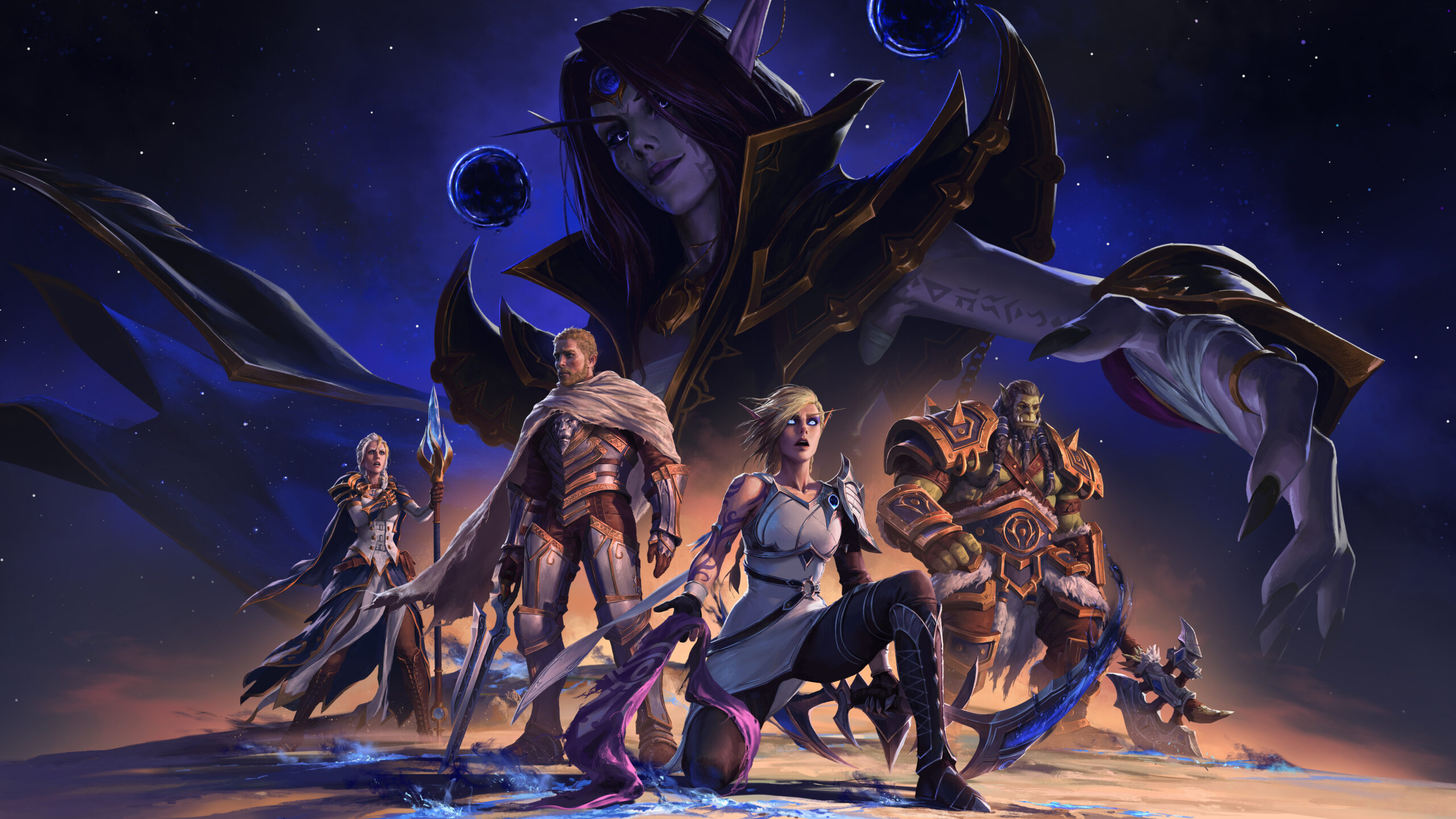You might be one of them Zoomers or Gen Alpha kids that’s too young to know that the first M in MMORPG stands for Massive, and that used to mean something, I’ll tell you what.
MMOs are not for everyone. They have always been a niche thing mostly for nerds and fat recluses such as me. It’s always been intrinsically synonymous with grinds, numbers, and getting strong equipment that increase your numbers so you can kill harder things that drop stronger items that further increase your numbers and so on.
But beneath the grind and number-crunching of MMOs there were communities of like-minded individuals that banded together to overcome those challenges and raise their numbers together. You met new people, walked that journey with them, and maybe, just maybe, emerge triumphant together. Along the way, you’d meet friends that live thousands of kilometers away, from different cultures and who spoke different languages, but who would become long lasting friends — that much I can attest to.
Those communities made their lives around game servers that functioned like a small virtual neighborhood or town of some sorts. You knew who the asshole-in-chief was, the top ace, the noob, the funny guy, the mysterious foreigner, the guild destroyer e-girl, and so on. But then one day, and as part of a lengthy MMO genre devolution process, this was no longer the case.
The journey was butchered, the community aspects pushed aside, and MMOs became glorified lobbies in which the sense of community ceases to be. It’s no longer mainly about hanging around with people and sporadically coming up with new adventures or things to do — it became about daily and/or weekly chores that you gotta run through without fail to stay competitive and not fall from the treadmill.
You don’t travel in-game to a faraway mountain to kill a dragon, you now just press a buton, open the Group Finder, click “Queue” and bam, you’re in the mountain with people you’ve never played with before (and never will again) mindlessly press buttons until the dragon dies and you either get a sidegrade or upgrade currency.
Gone is the sense of exploration, of getting to know others while killing thousands of mobs for meager XP gains, of establishing server dominance through strength, and so on.
The tl;dr of how this came to be is that MMOs were infected with Seasonality; something that works great in ARPGs like Diablo or Path of Exile or in shooting games like Fortnite or Call of Duty, but which did significant, near irreparable damage to the MMO genre.
It’s no longer about that grand journey, it’s all about the season’s checklist — and then, even if you do complete it and get your achievement trophy, it was all for naught, because a new season will come in a few months. All that time in the treadmill is essentially nullified or equalized, only to restart the treadmill all over again.
Yes, I’m talking about World of Warcraft, and in some ways, Final Fantasy XIV too, the two most notable cases of the MMO Seasonality problem.
The reason why Vanilla WoW and Burning Crusade were and still are so cherished is simple: Those were crafted as full-fledged journeys from start to finish, and not “Seasonal” packages where the only content that matters is the current season.
Let’s break it down then.
In Vanilla, you’d create your new character and embark on a lengthy journey. The leveling was part of the game’s experience, and not some main prerequisite that you had to go through before the “fun” began. It was a linear path, and you stopped whenever you wanted.
You knew what waited for you at endgame, and if you didn’t like that, then that’s fine. If you kept walking down that path, then you’d progress through the tiers, again, stopping whenever you wanted — but if you reached the top that was it. If you were halfway through a tier before a new one came out, whatever progress you had wasn’t instantly invalidated, and you could keep going as usual knowing a greater challenge waited for you after the current should you wish to take it upon.
The same goes for Burning Crusade (the original, not BC classic with its level boost bs). Yeah, at level 58 the game threw some catch up greens to help you get started in Outland, but it did not immediately invalidate your Vanilla progress, with some Vanilla raid items still having huge value halfway into the endgame meat grinder but without being mandatory (Styleen’s Impeding Scarab is a notable one).
Upon reaching max level in Burning Crusade you went thought the same exact process as everyone else: Do normal dungeons -> Heroic Dungeons -> Attune & prepare for Raids -> Raids -> Flex your shiny Tier set on impressionably noobs. Alternatively, you could go the PvP Arena, but that’s a can of worms of its own.
In both Vanilla and BC, each step of the endgame mountain climb granted you progressively better rewards, and your character would become linearly stronger. In some cases, such as Grull’s Lair, which dropped the Dragonspine Trophy was huge for Rogues, as you’d find use of it all the way to higher tier raids, giving this coveted item exceptional longevity.
It was a grind, one hell of a grind while at it, but man did it felt rewarding to reach the top.
Yes, Attunements were axed towards the latter half of Burning Crusade. You could make the case that it helped new players/alts enter raids easier without invalidating their endgame progress, and sure, why not, be able to carry your friends through hard content.
But then, since Wrath of the Lich King, the game slowly morphed into a “current patch” model in which only the latest set of dungeon and raids matter, and the game was adapted to churn you out fast to that spot by soft-resetting gear progression with every new tier release and pushing you faster and faster to that point of the journey.
Aside from Arena gear (like I said, a whole can of worms of its own), the early steps of catchup gear were seen in Patch 2.4. And it was quite the controversial “welfare epics” shitshow, that much I remember. You could kill dungeon and raid bosses for badges, which you could use to buy “catch up” gear. The thing is that the available badge gear selection was very specific, so you couldn’t deck a single character that way.
While functionally Blizzard kept iterating with the “current patch” model since the late 2000s, WoW officially became a “Seasonal” game about a decade ago with the release of Legion, when the game started the ongoing distinction between “Seasons” like Call of Duty or whatever.
As I said, you weren’t playing Legion, you where instead playing Legion Season 1, Season 2, 3 etc. Like an ARPG, your power progression in a season means absolutely nothing in the next one. Now, you may be wondering, why even bother playing a Season, and that’s kind of the issue, because the only incentives are FOMO cosmetic accomplishments and the dopamine from a numerical ranking.
The journey doesn’t matter anymore, what matters is your seasonal achievement. All previous previous content is invalid in terms of progression. Sure, it’s still there, and you can farm cosmetics, but someone joining the game midway through the expansion will not need to progress through it because it is not part of the current season, and in some cases, won’t even experience it.
At the same time, the seasonal nature of the game diluted and trashed away what little remained of the broader sense of community — already impacted by Ccross-server, cross region, and now cross faction; great additions if you analiyze the circumstances in a vacuum, but changes that had dire consequences for the community aspect of the MMO.
Seasonal content works for Diablo or Path of Exile because of the nigh endless nature of the grind in those games. ARPGs have much more rng and itemization variance, to the point that it is most certain that you won’t find every godly item that fully brings your build’s full vision to fruition on your own. But on a game like WoW, which no longer has that “grand journey” mountain to climb, it works against it.
What’s the point of engaging in the content if the progression is wiped clean not at the start of a new expansion, but rather, 3-4 times over the course of two years or so. It kinda lessens the impact and kills my motivation to engage with the grind, to be honest.
When it comes to Final Fantasy XIV, the game’s main selling point is the story and its journey. I’m not here to talk about Dawntrail and other issues because those warrant individual debates of their own — but rather, I’ll touch upon the Seasonality aspect of character power progression, which does manifest differently than WoW’s but it’s still there.
Since the release of A Realm Reborn, the game has utilized a system largely based (or at least inspired by) WoW’s original two-tier badge (tomestones in XIV) system. You have a current badge that’s farmable until your eyes bleed, and one that’s tied to a weekly cap. The former provides catchup gearing options, the latter gives you the bleeding edge stuff. Miss capping the top tier tomestones one week and you’re permanently behind the grind.
Another problem is that although the game lets you swap classes at will, the restrictive weekly tomestone cap prevents you from properly gearing up other classes outside your main in a reasonable timeframe — and good luck catching up if you have to swap mains because of X or Y reason.
XIV does not use “Seasons,” outside of PvP, but it’s there within the game’s decade-old structure. In every new “season” — ie. every odd-numbered patch release — a new tomestome is introduced that replaces the now former bleeding edge one, which is now the new catchup gear, everything dowars gets pushed down to either a legacy tomestone or rolled into other distribution methods (nuts, etc). Every new patch comes with a dungeon and, much like with tomestones, it pushes the former bleeding edge dungeon down a notch, which pushes another one down etc, making the latest two ones the only one that actually matter.
Raids predictably come as part of every even-numbered patch cycle and are the basis of XIV’s “Seasons.” Because every new raid is a new “wing” and not its separate entry, you have to do the previous tier at least one before unlocking the new one — but you only need to do this once, and in the braindead easy more.
The gear you got in the previous tier, like a WoW Season, does not matter for progression; the game heavily utilizes a rubber band item level progression system in which the previous ceiling is barely bellow the new floor. For what it’s worth, there is no actual FOMO in this system, because you can just go back and still do the past wings, whose rewards are pretty much cosmetic outside of niche scenarios such as needing an item or two for a very specific gear loadout for an Ultimate raid, which is a plus, I guess because I absolutely abhor FOMO. Now, PvP in XIV does have its fair share of FOMO…
But at the same time, the sense of grand journey is drastically diluted, because the game equalizes so much across the board, and there’s zero mechanical variane between your Paladin and another guy’s, just to name one example.
The bosses are different every XIV tier, but you basically play the same thing all throughout the twelve bosses. What bosses drop what items uses the same formula, so you know which boss drops the ring, which one the chest, which one the helmet, etc. There is no element of surprise, no grander thing to chase — yes, there are relic weapons, but you can just do that towards the end of the expansion when their final forms become available to obtain.
This Seasonality disease that infected MMOs — a consequence of the drop in-drop out zoom zoom rush games out there — is largely why games like Runescape have such a strong and loyal playerbase that persists throughout the years. To my knowledge, the game does not have Seasonal FOMO bs attached to it and has that old sense of journey that you don’t see anymore.
Before WoW (up to Burning Crusade), the only time I trully experienced a complete MMO journey from start to finish was Ragnarok Online, one of my most beloved games. That game is truly a product of a bygone era, a much simpler game yes, but one that, at least back then, had none of these seasonal problems.
You did what you want, you leveled how you felt, you assigned stats in whatever crazy way you felt — even if it was far from optimal — and you had no daily checklists to cross, no weekly currency caps to fill, none of that. The “endgame” entirely relied on community organization for both PvE and PvP.
Things have changed so much in the gaming world that sadly, and as much as the industry could benefit from a new MMO with a proper sense of journey, everything has devolved so much that it’d be hard to make it feasible. Between the eternal chase of “green Monthly Active User line go up” to brainrotten kids these days opting to play shorter-attention span games, yeah…


